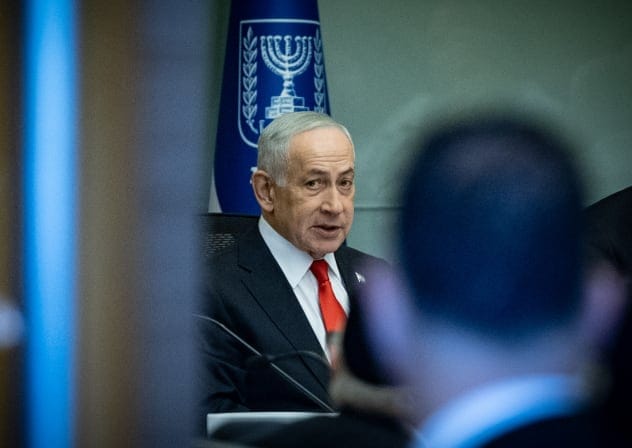Knesset to vote on splitting Arrangements Bill from state budget amid haredi parties' threats
The two parties threatened to vote against the coalition amid disagreements over the controversial haredi draft bill being advanced in the Knesset.

The two parties threatened to vote against the coalition amid disagreements over the controversial haredi draft bill being advanced in the Knesset.




St.-Sgt.-Maj. Ran Gvili was the final hostage whose remains were held in the Gaza Strip. His remains were located and returned to Israel for burial on January 26.

The project, called RAKMA, is designed to solve a problem that has long limited government research

Monday’s hearing focused on Netanyahu’s relationship with Shlomo Filber, whom he appointed as director-general of the Communications Ministry in June 2015.

Israel Police arrested at least nine members of the extremist Peleg Yerushalmi sect who blocked Highway 4 near Bnei Brak to protest recent detentions of haredi draft dodgers.

The Jerusalem District Committee had been set to meet on Monday as part of the approval process for Bashar al-Masri’s hotel, after the plan was approved by a local committee before the war.

The formerly Syrian-administered area, conquered by Israel in 1967, has been the site of many Hezbollah-related incidents, which have reinforced its importance for national defense.

Broadly speaking, the changes surround the agreement between the IDF and the Finance Ministry to reduce the number of standing reservists on duty on any given day from 60,000 to 40,000.

“The rule is clear: whoever incites against us - simply will not enter here," said Diaspora Minister Amichai Chikli.

Canadian-Israeli philanthropist and World Jewish Congress Israel president says strengthening the Negev is central to his vision of bringing one million new immigrants to Israel.

The prime minister spoke at the signing of the MOU about the alliance between the two countries: “AI, as you know, is Azerbaijan-Israel. AI is also AI, artificial intelligence."
